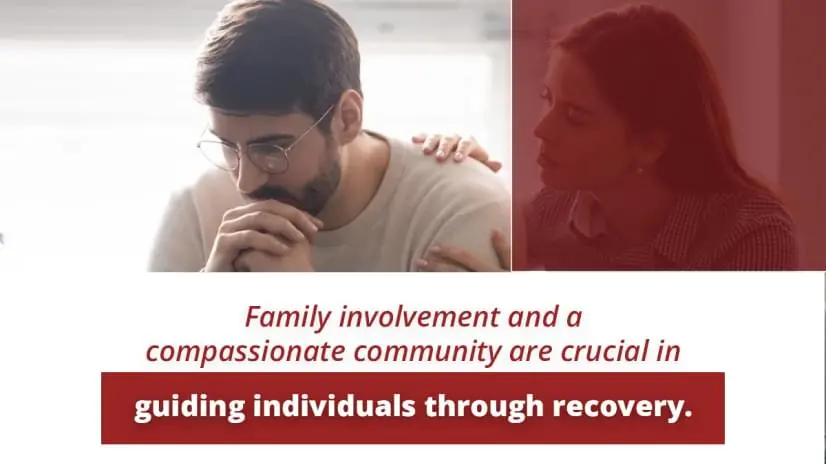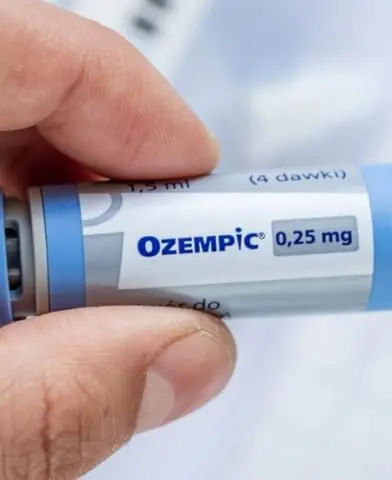
Addiction Treatment Resources in Kankakee, Illinois
Clinically Reviewed by:
Addiction is a growing problem in Kankakee, Illinois, just as it is in the rest of the country. Addiction destroys families, takes lives, and costs the nation about $118 billion annually. With that in mind, what are the resources available near Kankakee to help citizens overcome their drug or alcohol problems? Keep reading to learn more.

Key Takeaways
Addiction treatment is a supportive journey for individuals facing challenges with substance use. Here’s what you need to know:
- Family involvement and a compassionate community are crucial in guiding individuals through recovery.
- The journey begins with an initial assessment, leading to the creation of a personalized treatment plan.
- Beyond formal treatment, recovery support is vital, fostering a supportive community.
Indiana Center for Recovery offers a supportive environment for individuals to overcome addiction. Call us at (844) 650-0064 to reserve your spot at our facility.
Addiction Treatment: Explained
In the realm of addiction treatment, it’s crucial to grasp that it’s not a one-size-fits-all journey. Treatment is tailored to each individual’s unique struggles and needs. It involves therapeutic methods to address the root causes of addiction, focusing on physical, mental, and emotional aspects.
Professionals use evidence-based practices, combining counseling, medication, and holistic approaches. The initial step is a thorough assessment to create a personalized plan. Throughout the process, individuals gain insights into their behaviors and learn coping mechanisms, fostering lasting recovery.
Importance of Addiction Treatment
Addiction treatment goes beyond mere recovery; it’s about rebuilding lives. Treatment provides a structured path for individuals to overcome substance use challenges. It addresses not only the symptoms but also the underlying factors contributing to addiction.
Importantly, it offers a supportive environment where individuals can heal physically, mentally, and emotionally. Individuals gain essential life skills, self-awareness, and coping strategies through treatment.
Moreover, it is vital in preventing relapse and ensuring a sustained and fulfilling recovery journey. Realizing the importance of addiction treatment is acknowledging its transformative power in restoring health and fostering resilience.
Stages of Addiction Treatment
Addiction treatment progresses through distinct stages, each playing a pivotal role in the recovery journey. The initial stage involves assessment, where professionals evaluate the extent of addiction and determine an appropriate course of action.
The next step is detoxification. In detox, withdrawal symptoms are safely managed under medical supervision. The treatment phase incorporates therapy, counseling, and medication, addressing the psychological and physical aspects of addiction.
As individuals progress, aftercare becomes integral, providing ongoing support and resources post-treatment. Acknowledging the stages of addiction treatment is understanding the structured process guiding individuals from the initial assessment to sustained recovery.
Types of Addiction Treatment Centers Near Kankakee, Illinois
Various addiction treatment centers cater to diverse needs, offering tailored approaches for recovery. Learning the types of treatment available ensures individuals find the most suitable path to wellness.
Residential Treatment Centers
Residential treatment centers provide immersive, 24/7 care. Individuals reside at the facility for a set duration, typically from a few weeks to several months. This intensive environment fosters a focused recovery experience, offering therapy, counseling, and skill-building. It’s particularly beneficial for those with severe addiction requiring a structured and supportive setting.
Outpatient Treatment Centers
Outpatient centers allow individuals to receive treatment while living at home. This flexibility suits those with less severe addiction or commitments like work and family. Outpatient programs offer counseling, therapy, and medication management, enabling individuals to maintain daily responsibilities while undergoing treatment.
Sober Living Homes
Sober living homes provide a transitional step post-residential treatment or for those seeking a supportive environment during outpatient care. These homes offer a drug-free and communal living setting. Residents adhere to house rules, attend support meetings, and gradually reintegrate into daily life while receiving ongoing support.
Detox Centers
Detox is often the first step in addiction treatment. Detox centers are specialized facilities where individuals safely undergo the process of eliminating substances from their bodies. Medical professionals monitor and manage withdrawal symptoms, ensuring a safe and comfortable transition to the next phase of treatment.
Programs Offered by Indiana Center for Recovery
Indiana Center for Recovery offers a range of programs tailored to address various aspects of recovery.
Medical Detoxification
Medical detoxification, commonly known as detox, is the initial phase of addiction treatment. It involves the supervised removal of substances from the body, ensuring safety during withdrawal.
Medical professionals manage symptoms and complications, providing a foundation for further treatment. Detoxification is crucial in achieving stabilization before engaging in other therapeutic interventions.
Individual and Group Therapy
Individual therapy provides one-on-one sessions between a client and a therapist. It allows for personalized exploration of underlying issues, coping mechanisms, and goal-setting.
Group therapy involves sharing experiences and support in a collaborative setting, fostering a sense of community. Both modalities complement each other, offering diverse perspectives and building a supportive network.
Family Counseling
Family counseling recognizes the impact of addiction on the entire family unit. This program involves therapy sessions where family members participate to enhance understanding, communication, and support.
Addressing familial dynamics and educating loved ones on addiction fosters a healthier environment, aiding the individual’s recovery journey. Family counseling is vital in rebuilding relationships and establishing a strong support system.
Aftercare and Relapse Prevention
Aftercare programs are essential for sustaining recovery beyond formal treatment. They include ongoing support, counseling, and resources to navigate challenges post-treatment.
Relapse prevention strategies equip individuals with coping skills and awareness to avoid reverting to substance use. Aftercare plans are personalized, considering individual needs and circumstances, ensuring a smooth transition to independent, substance-free living.
Admission Process
The admission process involves several steps. These steps ensure individuals receive personalized and effective care.
Initial Assessment and Evaluation
The journey begins with an initial assessment and evaluation. During this phase, professionals gather comprehensive information about the individual’s medical history, substance use patterns, mental health, and overall well-being. This assessment helps determine the appropriate level of care and identify any co-occurring conditions. It forms the foundation for creating a tailored treatment plan that addresses the specific needs of the individual.
Creating a Personalized Treatment Plan
Based on the assessment, a personalized treatment plan is crafted. This plan outlines the recommended course of action, incorporating various therapeutic modalities, counseling approaches, and if needed, medication management.
The goal of the plan is to address the unique challenges and goals of the individual, ensuring a holistic and effective approach to recovery. The collaborative nature of creating a personalized treatment plan involves the active participation and input of both the individual seeking treatment and the treatment team.
Commencement of Treatment
Once the personalized treatment plan is established, the commencement of treatment begins. This phase may involve medical detoxification, if necessary, followed by the implementation of therapeutic interventions.
Treatment modalities, including individual and group therapy, family counseling, and other evidence-based practices, are initiated to address the physical, psychological, and emotional aspects of addiction. The process is closely monitored, with adjustments to the treatment plan as needed to ensure ongoing effectiveness.
Role of Insurance in Addiction Treatment
Insurance is crucial in making addiction treatment accessible for individuals seeking help. It helps cover the costs associated with various aspects of treatment, making it more affordable for those in need.
When someone has insurance, it typically includes coverage for addiction treatment services. This coverage extends to different levels of care, such as detoxification, residential treatment, outpatient programs, and therapy sessions. Insurance providers work with a network of treatment centers, ensuring individuals have options for care.
However, it’s essential to understand the specifics of the insurance plan, including the type of treatment covered, any copays or deductibles, and the duration of coverage. Some plans may have limitations on specific services or facilities.
Verifying insurance coverage before starting treatment is crucial to ease all processes. Treatment centers often assist individuals in navigating the insurance process, helping them understand what is covered and what financial responsibilities they may have.
Insurance serves as a valuable resource, easing the financial burden associated with addiction treatment and increasing accessibility for individuals on the path to recovery.
Specialized Addiction Treatments
These specialized addiction treatments highlight the diverse and tailored approaches available to individuals seeking recovery. From medication-assisted treatment and dual diagnosis care to gender-specific programs and holistic therapies, these options cater to various needs on the path to lasting wellness.
Medication-Assisted Treatment (MAT): Medication-assisted treatment, or MAT, combines medications with counseling and behavioral therapies to treat substance use disorders. It is particularly effective for opioid and alcohol addiction, helping individuals manage cravings and withdrawal symptoms.
Dual Diagnosis Treatment: Dual diagnosis treatment addresses both substance use disorders and co-occurring mental health conditions. This integrated approach ensures comprehensive care, recognizing the interconnected nature of addiction and mental health issues.
Gender-Specific Treatment: Some addiction treatment programs offer gender-specific approaches, recognizing the unique needs and experiences of men and women. This tailored approach fosters a supportive environment for individuals to address underlying issues.
Holistic Therapies: Holistic therapies incorporate non-traditional approaches such as yoga, meditation, and acupuncture into the treatment plan. These practices focus on the overall well-being of individuals, promoting physical, mental, and emotional balance.
Frequently Asked Questions (FAQ)
Indiana Center for Recovery addiction treatment programs offer outpatient services, which provide a chance for individuals to receive therapy while remaining in the comfort of their homes. Intensive outpatient programs offer more frequent sessions.
Residential or inpatient programs provide a structured atmosphere for immersive treatment. Medication-assisted treatment combines counseling with FDA-approved medications to address addiction.
Consider your specific needs to choose the right addiction treatment center. Assess the program’s accreditation and licensing to ensure quality care.
Look for centers offering evidence-based treatments tailored to your situation. Check if they provide a range of services like outpatient, inpatient, or dual diagnosis programs.
Ensure the staff is trained and experienced in addiction treatment. Seek reviews and testimonials for insights into others’ experiences. Verify if the center accepts your insurance or offers financial assistance. Location and family involvement are crucial factors, too. Finally, visit the facility to gauge its atmosphere and support system.






 100% Confidential
100% Confidential